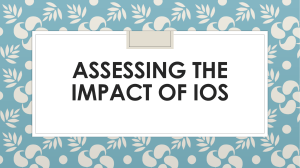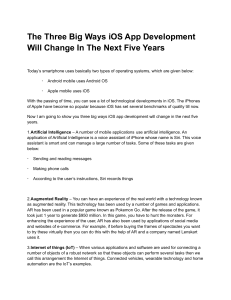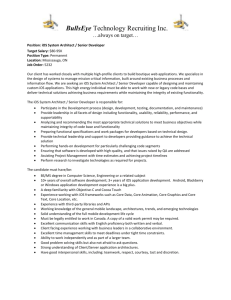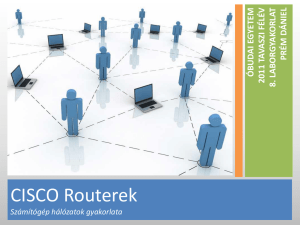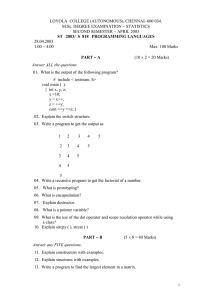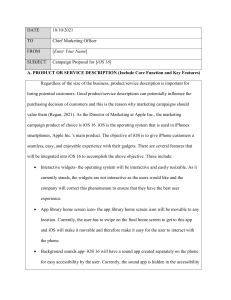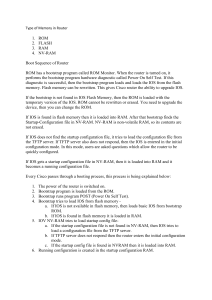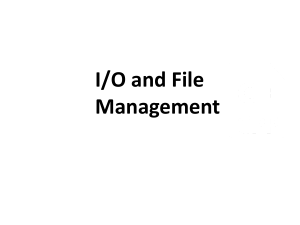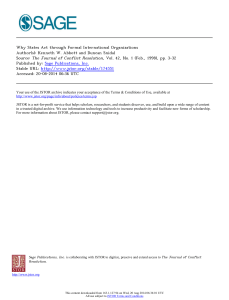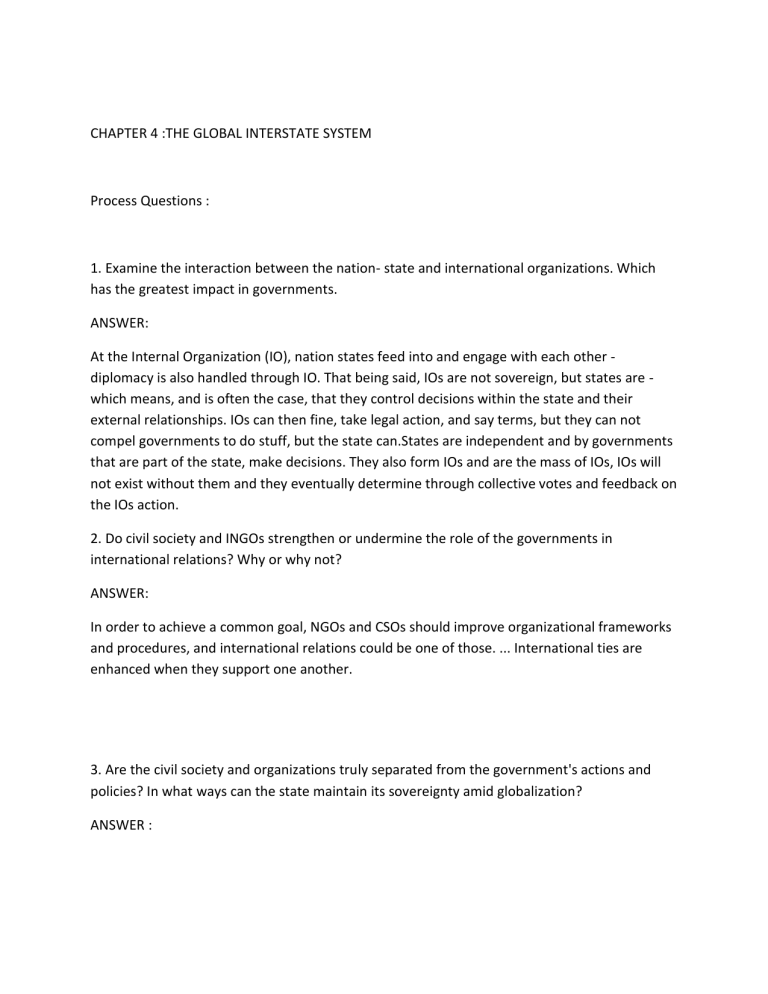
CHAPTER 4 :THE GLOBAL INTERSTATE SYSTEM Process Questions : 1. Examine the interaction between the nation- state and international organizations. Which has the greatest impact in governments. ANSWER: At the Internal Organization (IO), nation states feed into and engage with each other diplomacy is also handled through IO. That being said, IOs are not sovereign, but states are which means, and is often the case, that they control decisions within the state and their external relationships. IOs can then fine, take legal action, and say terms, but they can not compel governments to do stuff, but the state can.States are independent and by governments that are part of the state, make decisions. They also form IOs and are the mass of IOs, IOs will not exist without them and they eventually determine through collective votes and feedback on the IOs action. 2. Do civil society and INGOs strengthen or undermine the role of the governments in international relations? Why or why not? ANSWER: In order to achieve a common goal, NGOs and CSOs should improve organizational frameworks and procedures, and international relations could be one of those. ... International ties are enhanced when they support one another. 3. Are the civil society and organizations truly separated from the government's actions and policies? In what ways can the state maintain its sovereignty amid globalization? ANSWER : Governments, civil society and even companies (mainly multinationals and some locals) are all related. The true power, however is economic power, not political power exercised by the government. As such, politicians are essentially puppets of business interests. That's why a dying breed is liberty and nation states. Mainly because political boundaries need to fall to make more money for them.This is why North America has its Alena and Europe has its Euro zone, while others, mostly in Asia, are still in discussion. As such, nation states are transformed into market states, and people are transformed into customers. That's why it's so easy now to get Western passports, as long as you at least have money. But some countries have found a balance, including China, which has never really been a democracy, while being, to some degree, a "free market" that is now in several respects more effective than the Western free market. But they could do that mostly because, to begin with, they were never a democracy. Where those in control, to find more money for the next election, spend much of their 4 years in power. This forbids most leadership and far fewer dreams from being practiced. In other words, because they centered man's power and brain on seeking the best compromises between their 2 systems, China might remain China. It's far from ideal, of course, but at least their country is one that still has a massive cultural heritage to defend. In fact, this is not true for some countries, especially in Europe, where the economy now supersedes national priorities and evolution... unlike our western nations, which are pretty young with little cultural heritage to hold on to. Although traditional political dangers - the possibility of global annihilation, the reality of regional conflict - seem to be receding, we have all become conscious of another insidious risk recently. In its own way, it is as menacing as the more customary threats that international diplomacy has been dealing with for decades. It is the possibility that the atmosphere, the seas, the planet itself will suffer irretrievable harm. What we are doing to the world right now by destroying the surfaces of the soil, polluting the oceans, and introducing greenhouse gases to the environment at an unparalleled pace, is all new in the earth's experience. It is mankind and its actions that in negative and dangerous ways, alter the climate of our world. The implication is that change is likely to be more profound and pervasive in the future than anything we have learned so far. Shift to the sea around us, change to the environment above, leading in turn to change in the climate of the earth, which could change the way we live in the most simple way of all. A new element in human relations is the possibility. In its consequences, it is equivalent to the discovery of how to break the atom. Its outcomes may indeed be far more far-reaching. There's the evidence. Harm is being done. What are we the international community, doing about that? The action needed in certain areas is mainly for individual nations or groups of nations to take. But the global climate change issue is one that concerns all of us and action can only be successful if it is done at the international level. It is not a good squabbling about who should pay or who is accountable. We have to look forward not backward, and only by a massive international, cooperative effort can we succeed in dealing with the issues. An equal answer from the whole world is needed by the environmental crisis facing the whole world. Every nation is going to be impacted and nobody can opt out. Those nations that are developed need to do more to support those that are not. The job ahead is going to be long and thorough. We should embark on it, confident of accomplishment, not afraid of disappointment. Among the high-points of scientific exploration were Darwin's voyages. They were conducted at a time when men and women were increasingly assured that we could not only grasp, but also master, the natural world. Today, more modesty and reverence for the balance of nature have been gained instead. But another of the beliefs of Darwin's era should help to see us through - the belief in reason and the scientific method. We need our reason to teach us today that we are not - that we must not try to be - the lords of all we survey. We are not the lords, we are the Lord's creatures, the trustees of this planet, charged today with preserving life itself - preserving life with all its mystery and all its wonder. May we all be equal to that task."
